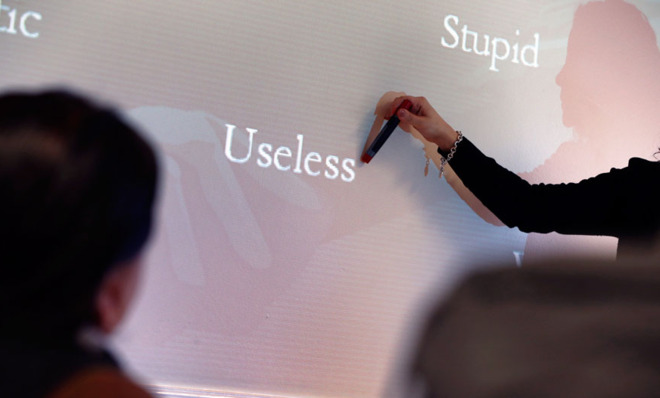Ban PowerPoint!
And replace it with Amazon's innovative solution


A free daily email with the biggest news stories of the day – and the best features from TheWeek.com
You are now subscribed
Your newsletter sign-up was successful
PowerPoint just might be the single biggest drag on productivity and clear thinking in corporate America today.
Let me explain.
PowerPoint has become the lingua franca of the corporate world. Inside many companies, if you want to say or ask something, you have to produce a PowerPoint. (I use PowerPoint as a generic term for slide presentations — maybe your company uses another piece of software, though I doubt it.) In many places, PowerPoint is a deliverable. Consulting firms sell PowerPoint decks — sometimes literally.
The Week
Escape your echo chamber. Get the facts behind the news, plus analysis from multiple perspectives.

Sign up for The Week's Free Newsletters
From our morning news briefing to a weekly Good News Newsletter, get the best of The Week delivered directly to your inbox.
From our morning news briefing to a weekly Good News Newsletter, get the best of The Week delivered directly to your inbox.
The problems with PowerPoint are numerous: It puts the standard for communication at the lowest possible common denominator. It is wholly unnecessary and makes it hard to express any complex thoughts. And because most people don't have taste, most PowerPoint presentations are ugly.
People don't know the difference between a PowerPoint presentation made for projecting, and one made for reading, leading to huge blocks of text on a screen.
People can rarely pay attention to two things at once, so they typically read your PowerPoint presentation as they listen to you, and actually pay attention to neither. This is made even worse if your deck is just a readout of the things you're about to say.
I went to law school, and then business school. In law school, the main thing we had to produce were multi-page commentaries of real legal decisions or fictional cases. In business school, for non-quantitative courses, we had to produce PowerPoint presentations.
A free daily email with the biggest news stories of the day – and the best features from TheWeek.com
Now, I will admit: One good thing about PowerPoint is that thinking in bullet points forces you to narrow your thoughts to the essentials, and to be concise. But eventually, I realized that PowerPoint allowed me to produce sloppy thought and sloppy work, and nobody would notice, because I never had to go into any depth.
There is at least one company that doesn't use PowerPoint. And surprise, surprise, it happens to be one of the most successful and innovative companies in the world: Amazon.
Instead of preparing a PowerPoint presentation in advance of a meeting, Amazon employees produce a six-page memo. At the beginning of the meeting, everybody reads the memo, together, in silence, before discussing it. This has several positive effects. First, the "I read it" effect, whereby if you expect people to read something ahead of time, they actually don't because they don't have the time, and then they try to catch up during the meeting. Second, the "What about…?" effect, where you interrupt someone's presentation to ask a question that they were going to answer two slides down.
The six-page format rewards both concision and expression. It's big enough to allow people to go into depth, but short enough to be workable, and to force people to express themselves in a concise way.
Most importantly, the format rewards good writing, which is highly correlated with good thinking. If your thinking about something is muddled, your writing will be muddled; if your thinking about something is clear, your writing will be clear. Forcing yourself to write clearly forces you to clarify your thoughts. This is precisely the hard process that PowerPoint lets you escape, and which is so necessary.
Corporate America, go the Amazon way. Ban PowerPoint.
Pascal-Emmanuel Gobry is a writer and fellow at the Ethics and Public Policy Center. His writing has appeared at Forbes, The Atlantic, First Things, Commentary Magazine, The Daily Beast, The Federalist, Quartz, and other places. He lives in Paris with his beloved wife and daughter.



